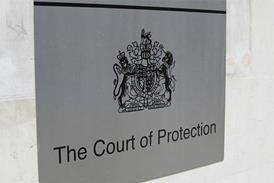Topics
Rates – Rateable occupation – Non-domestic rate – Appellants leasing property to tenant
Alternative Citations
[2014] EWHC 2207 (Admin)
Hearing Date
10 July 2014
Court
Queen’s Bench Division, Administrative Court (Birmingham)
Judge
Mr Justice Hickinbottom
Representation
Reuben Taylor QC (instructed by Wragge Lawrence Graham & Co LLP) for the appellants.
Judith Jackson QC (instructed by Birmingham City Council Legal & Democratic Services) for the authority.
Abstract
Rates – Rateable occupation. The tenant of the appellants’ property went into liquidation and its liquidator disclaimed all interest in the property. The appellants continued to call on a guarantor to make good the tenant’s default and the guarantor paid the sums demanded. The judge held that the appellants were liable for rates charged by the defendant local authority. The appellants appealed by way of case stated. The Administrative Court, in dismissing the appeal, held that the judge had been correct to find that the first appellant had been the owner within ss 45(1)(b) and 65(1) of the Local Government Finance Act 1988 and, therefore, liable for non-occupation rates for the property.
Summary
The judgment is available at: [2014] EWHC 2207 (Admin)
The appellants were the freehold owners of a property. In June 2006, they granted a ten-year lease to a company, Woodward Foodservice Limited (WFL), that company’s obligations being guaranteed by another company, W F Group Holdings Ltd (GHL). The lease required WFL to pay all outgoings, including rent and rates, and gave the appellants a right of re-entry in the event of default, defined to include a failure to pay rent, or entering administration or receivership. In July 2008, with the appellants’ consent, WFL assigned the lease to another company, W F Group Ltd (GL). However, WFL guaranteed GL’s obligations to the appellants under the lease by way of an authorised guarantee agreement. GHL and GL went into liquidation and were wound up. The liquidator disclaimed all interest in the property, under s 178 of the Insolvency Act 1986 (the 1986 Act). The appellants had continued to call on WFL as guarantor under the terms of the authorised guarantee agreement to make good the default of GL, and WFL had made payments of the sums demanded. The respondent local authority made rate demands of the appellants for the period after the disclaimer. Those were not honoured and the authority was granted a liability order against the first appellant in the sum of approximately £590,000. The appellants appealed by way of case stated.
The issue referred by the judge for the consideration of the court was whether he had been correct to find that the appellants were the owners within the meaning of ss 45(1)(b) and 65(1) of the Local Government Finance Act 1988. It was common ground that whether the appellants were liable for the rates turned on whether they had been entitled to immediate possession of the whole property.
The appeal would be dismissed.
Properly construed, s 178(4) of the 1986 Act operated to ensure that the guarantor’s covenant, in the event of the tenant’s default, was given continued substance and the third party guarantor remained contractually liable. Therefore, the guarantor had to continue to make good the former tenant’s default in paying rent under the determined lease until the landlord exercised his right to immediate possession by physically taking possession (see [24] of the judgment).
The appellants had the right to immediate possession once the lease in respect of the property had been disclaimed. After the assignment of the lease and prior to the disclaimer, GL had been the tenant and the person entitled to immediate possession. After the disclaimer, the lease had ceased to exist and the appellants’ reversion had accelerated. Consequently, the appellants, as freehold owners, had become entitled to immediate possession. However, WFL had remained liable to make good the defaults of GL, not because the lease had continued in any shape or form, but on the proper construction of s 178(4) of the 1986 Act (see [24], [32] of the judgment).
Although for reasons somewhat different from those of the judge, the answer to the question posed would be ‘yes’ (see [32] of the judgment).
Hindcastle Ltd v Barbara Attenborough Associates Ltd [1996] 1 All ER 737 applied; Brown v City of London Corpn [1996] 1 WLR 1070 considered; Park Air Services, Re, Christopher Moran Holdings Ltd v Bairstow [1999] 1 All ER 673 considered.
All content provided by LexisNexis.



















